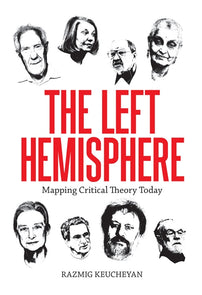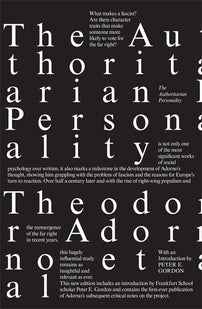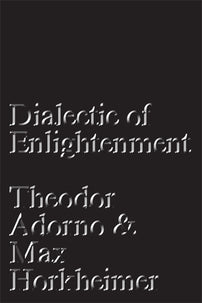The last nineteenth century German philosopher: Habermas at 90
Raymond Geuss' recent article discussing the German philosopher Jürgen Habermas on the occasion of his 90th birthday sparked a fierce controversy. Here Raymond Geuss responds to his critics and argues that the liberal philosophy of Habermas is fundamentally inadequate in the face of the crises of contemporary capitalism.

In June 2019 I published an essay, entitled “A Republic of Discussion” in the online journal The Point. In the essay I praised John Dewey for his open-ended idea of communication as an empirical process with potentially changing rules, and also Adorno for his criticism of liberal claims about the potential universal communicability of every truth. In doing so, I contrasted their views with those of Jürgen Habermas, who held that communication had invariant, universal rules that imposed forms of behaviour on all speakers. In the sense in which Habermas used the term, ‘communication’, I thought, did not exist. This essay seemed to strike a very raw nerve among Habermas’ students leading to a series of highly affect-laden comments and replies. I unfortunately allowed myself to be pulled into this maelstrom, but the experience I had of whirling around vertiginously in replies and counterreplies has had the eventual effect that now, at a distance, I think I can understand more clearly what upset so many people, and I think I can now formulate some of the points I was trying to make in a more focused way.
The nineteenth century saw four ‘revolutions’ in our way of seeing and thinking about society: first, the great upsurge of socialist, anarchist, communist, and other kinds of radical political thought (for instance Marx), second, the new aesthetic sensibility associated especially with figures like Rimbaud (‘dérèglement de tous les sens’), third, Nietzsche’s transformation of epistemology in his ‘perspectivism’, and fourth, Freudian psychoanalysis. It, naturally, took a while for these movements to develop and articulate themselves; this was a very slow process that continued into the 20th century. The thinkers whom we now group together and call the Frankfurt School (Horkheimer, Adorno, Benjamin, Marcuse) all made some attempt in the 1930s and 1940s, in one way or another, to assimilate all of these strands and develop them further. With the passing of the original members of the Frankfurt School in the late 1960s and early 1970s, the succession passed (unofficially, of course) to a younger generation represented most notably by Jürgen Habermas (born 1929). Yet to move from reading, say, Adorno to reading Habermas, is like watching the clocks be turned back sixty years (from 1940 to 1880). Habermas makes a serious attempt at thinking about the first of my four revolutions, but can manage only a desultory stab at dealing with the fourth, completely misses the point of the third, and does not even seem aware of the second. Instead, anyone reading his voluminous work may well get the impression of being projected back into the world of the neo-Kantians, if not into that of the Sage of Königsberg himself.
Habermas’ early writings outline a programme for giving a ‘transcendental’ framework for cognition and action. Here, one should do him the philosophical courtesy of treating his use of the word ‘transcendental’ as if it were serious and considered, and modelled on Kantian usage. To say that there were ‘transcendental conditions of communication’ did not mean merely (1) that there were important conditions, nor (2) that there were universal conditions—because these could be merely empirically universal, nor indeed (3) that there were necessary and universal conditions, but (4) that there were necessary, invariant, universal conditions that could be the grounds of further cognitions apriori. What was crucial then was that the purported necessary and universal conditions of communication gave us apriori knowledge about commitments we (purportedly) had to have, commitments about how we had to evaluate things, and how we had to act. These commitments were supposed to be binding on ‘everyone’ and to trump other considerations..
It is important to see that point (4) above carries full weight, because it is what would permit Habermas to hold everyone else to a set of commitment he derived from his analysis. That is, it is particularly important not to think that all Habermas is trying to do is to point out that there are some presuppositions of our speech and action. Of course, in everyday life we all make innumerable presuppositions and assumptions about the world, have commitments to and expectations about others, and would dearly love to be able to live up to various ideals we have in various ways acquired and invented. What is perhaps more important, we would dearly love to hold others to (unrealised) ideals we have, and would like (in some cases) to impose commitment to these ideals on them. If I speak French to a waiter in Lille, it is because I assume he will understand that language, and I presuppose all sorts of other things in our encounter. I also project onto him various ideas about how I think he ought to behave toward me. Some of the assumptions I make will have the form of specific bits of propositional belief (of ‘knowing-that’) such as my thought before speaking to the waiter: ‘That looks like the waiter’. This may be thought to presuppose that I am in a café or restaurant (or that I think I am in a café or restaurant). Other assumptions may be said to be embedded in my action as forms of ‘knowing-how’ or skills, such as the various abilities I exercise in knowing how to sit on a chair without falling over. When I say simply ‘vin rouge’ in this context, I am showing that I know how to perform the speech-act of ordering a glass of wine. It is the context that makes this action one of ordering rather than simply making a descriptive statement about my environment. ‘Ordering’ can be said to presuppose a whole set of institutional practices.
None of this is at issue; it is taken for granted and trivial. If that is all Habermas has to say—here are a set of presuppositions we make, they are connected with many of our other institutions and we think they are bloody important—it is philosophically banal. He hasn’t said anything interesting yet. Things move on only when we go on to ask three further questions:
1. How fixed and invariable are the assumptions and presuppositions ‘we’
make, or that ‘we’ could make?
2. What reasons or grounds do I have for presupposing what I presuppose?
3. What expectations and commitments can I properly impose on you
I contrast two sets of responses to these questions, the transcendentalist (say ‘Kant’) and the non-transcendentalist (say ‘Dewey’). The transcendentalist thinks (question 1) that at least some of our basic ‘presuppositions’ are very fixed indeed, perhaps even couldn’t be changed; (question 2) that I have some very special grounds for making at least some of the basic presuppositions I (always) make; (question 3) that I have some non-contextual reason for imposing (some of) my commitments on you. Kant and Habermas disagree about the answer to question 2: Kant appeals to ‘special grounds’ purportedly rooted in some structures of universal reason, whereas Habermas mobilises his version of speech act theory, but that, in the larger scheme of things, is a trivial distinction. In contrast to the transcendentalist, ‘Dewey’ would say (question 1) that what ‘we could’ come to assume or presuppose, is inherently undefined. The basic fact is that the future is genuinely open. Our knowledge is changing (and ‘we’ are changing), and we can’t predict apodictically how it (or ‘we’) will develop. We have to act in the present, but we should do so tentatively on the basis of our best present assessment, not taking that to have any absolute standing. ‘Our best assessment’ is what we think at the moment, given our best lights, nothing more (but nothing less). These lights have to be enough, because they are all that we have (although in the future we may have, certainly, other and, perhaps, better). The motivation of the transcendentalist is the inability to tolerate this thought, namely that what is in fact cognitively available to us changes and is limited, and that nothing more than it is actually given: no God, ‘pure reason’, no ideal speech situation. ‘Dewey’s’ response to questions 2 and 3 is precisely that there are no special, non-contextual reasons or grounds for dealing with these questions.
I do not see, then, that Habermas’ appeal to ‘speech act theory’ (rather than ‘pure Reason’) makes any difference. Some defenders of Habermas disagree. Seyla Benhabib writes: ‘Habermas is NOT searching for transcendental or quasi-transcendental conditions überhaupt, but... he is analysing the conceptual presuppositions which we as speaking agents make...’. Yet this does not address the point. Suppose Prof. Benhabib means: ‘We make these presuppositions now in the sense in which we agree on the rules of chess in order to play a game of chess. However, we could just as easily change the rules of chess or decide to play go or bridge. What’s more, you could unilaterally act in a way that did not conform to the rules, and I would then have to decide what to do’. What I did in this situation could not be simply read off from the rules of chess. If this were all Habermas had to say, that would, I submit confirm the suspicions about the vacuousness of his position, because a very important class of the most serious cases are ones in which the rules are not followed, and the question is what do we do then.
If I start a game of chess and then begin to ignore the rules, you may say ‘That’s not chess’, and you would be right, but so what? I may perfectly legitimately have more pressing concerns than conforming to the rules of chess. In Chapter One of my book Changing the Subject I try to discuss this with reference to the chess game between the Knight and Death which occurs in Ingmar Bergmann’s film The Seventh Seal. Do rules about lying, sincerity etc. have this status, like the rules of chess? To defuse the suspicion of triviality would require saying that they do not and why they do not, saying why we can’t change these ‘presuppositions’. Repeating that they are the ones we make, is not an answer to this. Whether the ‘assumptions’ and ‘presuppositions’ in question are associated with, or have the form of, instances of ‘knowing-how’ or of ‘knowing-that’ does not matter to the overall structure of the argument. If I say: ‘I don’t presuppose that if I were to discuss this matter with Habermas for an indefinite period of time under ideal conditions, we would reach agreement’; he might reply: ‘Oh, yes you do; you just don’t know that you do.’ Why is that? Repetition is no answer.
Some people seem to think that appeal to some version of an argument from what are called ‘pragmatic contradictions’ can help Habermas here. ‘I am not now speaking English’ is always false, they claim, (when I enunciate it) and therefore, the conclusion, it is said, follows that there are somehow self-validating rules of speech and action. Habermas’ project is to formulate these. I have myself never been able to see how any of these arguments from pragmatic contradiction operate, unless one can already presuppose a closed system. Whether or not there is or could be a closed system, is exactly what is at issue between transcendentalists and so it can’t ‘neutrally’ be presupposed by the transcendentalists that this system is closed. Suppose that ‘I am not now speaking English’ is the code phrase that I have agreed to use to tell the spymaster who is running me that I am in danger. If, then, I say ‘I am not now speaking English’ when I am in danger, I am speaking the truth to my operator. The Habermasian will say ‘But you can’t change the goal-posts and parameters of play like that.” To which my reply is, “why not?” Moving, as they say, to the “meta-level” will not help because one can play the same game there. The Habermasian might say “But that must eventually stop!” to which, again, the reply is “Why?” No stopping point need be more than provisional, and I (or, we) can know this. Again we encounter the very same anxiety of the part of the transcendentalist who cannot tolerate the thought that no system is closed, and the terms of discussion are not fixed once and for all.
Because many people really seem to find it difficult to take this point, let me repeat it: Human life is not a closed system, but one with indistinct indefinite boundaries and open toward a changing future. Of course, we can treat it, for some specified purposes, as if it were a closed system, but we will always pay a price for that in the form of something that will be left out of the system. We can’t always know what exactly, or how high, the price is because we can’t always know antecedently what is left out. This, again, is not an argument against acting on our best knowledge, merely against treating that knowledge (and in general our present social arrangements) as invariant or even transcendentally grounded.
As a final gesture, some supporters of Habermas suggest that if one rejects his particular view of discussion, one must also give up the very idea that there can be reasoned conversation at all, or that one can give grounds for anything one does. One might call this strategy “aut meum aut nihil”, and it has been deployed since the time of Plato who tried to convince his auditors to accept the false dichotomy: either one is committed to “Ideas” (in a strong metaphysical sense) or one must accept cognitive and semantic chaos and the utter unintelligibility of anything. Habermas’ version of this—either notions of reason are transcendentally grounded in an ideal speech situation or there are no reasons at all—represents an equally false dichotomy. I decline this choice. I also decline to accept that unless I can give a full alternative account of what a ‘reason’ is, I am not at liberty to reject Habermas’ view.
In 1976 or 1977 when I was writing the manuscript that was eventually published as The Idea of a Critical Theory, it was the publisher’s idea to add the subtitle Habermas and the Frankfurt School. I had conceived the work without reference to any particular figure, and I had three aims. First, I was interested in rehabilitating the concept of ‘ideology’, which at that time was widely criticised. I thought that these criticisms were unwarranted, and motivated by a confusion of different senses in which the term ‘ideology’ was used. Second, I was interested in the idea of people having and pursuing or failing to pursue their own ‘real interests’. Third, I was keen to try to suggest that there could be forms of ‘enlightenment’ that were not in any sense analogous to scientific theories, but were nonetheless important. To put this another way, humans could exhibit more or less enlightened attitudes and ways of behaving. Being ‘more enlightened’ in this sense did not reduce to having had a greater range of empirical experience, having more and evidentially better supported individual opinions, or instantiating to a higher degree certain formal properties (such as formal consistency). I merely mentioned this third point at the very end of the book, without developing it. Despite the book’s external success, I thought that on my own terms it was a huge failure, if only because I discovered that several careful philosophers (including Dick Rorty) thought I was trying to do the reverse of what was my intention; namely that I was trying to discredit the use of the term ‘ideology’. In addition, others thought I was asserting dogmatically that there were real interests that existed independently of their construction by agents. Finally, no one seemed to pick up the point about enlightenment and science/knowledge at the very end, which seemed to me to be key.
Still, a critic could say, the book, as published, certainly looks as if it is supposed to be a treatment of the philosophy of Habermas, and it is perfectly true that the critic could cite ample evidence for this claim. It seems slightly strange to me to be arguing with someone else about what a book I myself wrote, albeit forty years ago, is really ‘about’, but then texts once published are ‘out there’ and become in some sense public property, so what would be the point in arguing that ‘this-or-that’ was not my intention? Intentions might not matter that much. I mentioned already in a previous remark that the book had been a failure in my view because people, especially people who were, I thought, careful readers, and whose opinion I valued, mistook what I saw as the central point of the work. This was obviously my fault for not having made myself clear.
But it is true that after two experiences I had in the early 1970s, I was already firmly convinced that Habermas was on the high road to nowhere by the time the book was written. The first experience happened in about 1971. The colleague with whom I shared an office as an Assistent in the Philosophisches Seminar in Heidelberg, Konrad Cramer (later Professor at Göttingen), said something to me that stuck in my memory. One could, he said, go through the work of Habermas and simply strike out all occurrences of the word ‘transcendental’ (including in the expression ‘quasi- transcendental’), and if one did that, not only would the resulting text lose nothing, but palpable falsehood would often be transformed into truths. The only problem was that the result would be philosophically trivial, as already mentioned. He convinced me that the ‘transcendentalism’ in Habermas was central to his project, but a complete confusion. The second was Habermas’ appearance in Ernst Tugendhat’s seminar on philosophy of language in Heidelberg about 1972 or 1973, when Habermas made some brief remarks and in the course of the long discussion that ensued, showed himself to be (in my opinion) utterly incapable of responding convincingly to some elementary questions about his own views on language.
In early 1974 I gave a seminar on ‘ideology and the philosophy of the social sciences’ with Sidney Morgenbesser at Columbia University and began to work on the manuscript that eventually became ‘The Idea of a Critical Theory’. By 1976 I had a longish text of a couple of hundred pages on ideology and interests, but it was unfinished. In 1977, Jeremy Mynott, Editor at Cambridge University Press, took the highly risky step of offering me proleptically a contract to publish that manuscript, when, one day, it would be finished. I think this sort of vote of confidence in an incomplete manuscript by an unknown author would be even more unusual today than it was then. But it was not, perhaps a complete leap in the dark because I by that time had moved to Princeton and was giving a seminar there which was attended by Susan James, Dick Rorty, and Tim Scanlon, in which I treated some of the material in the book. I suspect Jeremy will have consulted with them, and probably also with Quentin Skinner, who was at the Institute for Advanced Studies in Princeton at the time, and with whom I had frequent and highly useful discussions. Jeremy suggested, when offering me the contract, that the manuscript would fit well into the new Cambridge series ‘Modern European Philosophy’ edited at that time by Alan Montefiore and Hide Ishiguro. I continued to work on the manuscript until 1979 when it had reached a length of about 700 pages (in double-spaced typewritten form). My teachers had told me that every serious author goes through successively three stages with regard to each manuscript: self-admiration; self-loathing; fatalistic indifference. Once, they said, one had reached the third stage the manuscript was ready to publish. In 1979 I attained this fatalist attitude; however, I had always been an admirer of the Alexandrian poet (and librarian) Kallimachos, whose motto was ‘mega biblion, mega kakon’ (‘a big book is a very bad thing’), so before submitting my text, I quickly cut it down to 160 (typed) pages, structuring it so that it would, at first glance, look plausibly like a manuscript on ‘Habermas and the Frankfurt School’. I trusted that careful readers would see through this immediately, but there I miscalculated significantly because that was not the case.
As a child I was told a story about an Inuit hunting polar bears that stands as an apt image for the kind of work I was trying to do with The Idea of a Critical Theory. I don’t have any idea whether or not the story is correct, but it is in any case a good metaphor for a certain kind of writing. The Inuit hunter takes a straight short bit of whalebone, sharpens it at both ends, and then warms it over the fire. Whalebone is flexible when thus heated, so the hunter can bend the bit of bone into the shape of a horseshoe without breaking it. He then encases the bent whalebone in seal-blubber, freezes it, and places it out for the polar bear to find. When the polar bear scoffs down what it takes to be a tasty bit of frozen seal-blubber, it begins to warm up in the bear’s digestive system. As the seal-blubber gradually unfreezes, the bent whalebone eventually snaps open, puncturing the polar bear’s stomach. The polar bear gradually bleeds to death; it will weaken until the hunter, following it assiduously, eventually stumbles across its dead body, which he will be able to use to provide essential resources for his family.
Think of the polar bear as our greedy ideological system, massive and immune from any form of direct external attack, but always eager to pounce upon dainty morsels that seem to confirm our worst prejudices. The Idea of a Critical Theory was to be the bit of frozen seal-blubber containing an externally invisible sliver of pointed whalebone, the central argument. The unwary reader would, I hoped, read the whole text until, on the very last page, the blubber (the quasi-narrative references to Habermas) began to melt, allowing the point about enlightenment to unfold itself. With that, the ideological system would begin to haemorrhage internally until it finally died. Well, much to my disappointment, it did not actually work like that.
Still, in the end, what is the point of this? If people take The Idea of a Critical Theory to be a treatment of Habermas, they will most likely continue to do so, and why should I have any interest on raining on that particular parade? If I think my 40-year-old book was a failure, why bother commenting on how to read it? Only in case there might be the occasional odd reader who could be encouraged to look for something else half-hidden beneath the surface in the book, which they might find interesting. I, of course, cannot force anyone to look at the book in this way nor would I wish to try to force them to read the text in any one way rather than another.
I stopped reading what Habermas wrote in about 1980 when I discovered that he continued to be committed to pursuing a general line which seemed to me a dead end. I did, in fact, read a further one of his books, Der philosophische Diskurs der Moderne, when I was asked to review it, but I thought it was a tissue of misunderstandings, and so that was my last attempt to keep up with his writing.
So if I am not an expert, and think Habermas’ project is terminally flawed, why don’t I keep my mouth shut about it? I have tried to do this for the past thirty years or so, but in March of this year I happened to find myself in Vancouver, Canada with nothing much to do, and on the computer in my hotel lobby I found a message from my old friend Martin Bauer of Mittelweg 36 and soziopolis, inviting me to write something on the topic of Habermas and communication. Martin had a knack of suggesting topics I myself would never have picked and thought myself unqualified to treat (for instance, Cervantes’ Don Quixote). Martin was keen to avoid conventional pieties—who can blame him for that? What is the point of publishing mere panegyrics? It is, I assume, commonly accepted that public philosophers should not be immune from public criticism, or even expressions of public dissent; also anyone may speak. Adoration, on the other hand, is an inappropriate attitude in philosophy; it went out with the Pythagoreans, who had a religious cult of their founder, and we have no good reason to revive it. So finding myself at a loose end for four or five days in Vancouver, I wrote a short essay in German about what I remembered about Habermas (and also T.W. Adorno and John Dewey) on communication.
It is clear that I take Habermas to be an instance of a kind of ‘liberalism’ which I think deserves criticism. This has clearly upset some people who seem to think it inappropriate to do so when ‘liberalism’ around the globe is under attack by various authoritarian leaders and movements. Sometimes the suggestion even seems to be that the only way to avoid supporting Putin is by accepting Habermas’ construction, or that the only way to avoid playing into Putin’s hands is to avoid any criticism of any position that can reasonably be construed as ‘liberal’ (as Habermas’ position, in my view, clearly is). Following Karl Kraus (and my old teacher Sidney Morgenbesser), I would say that if I have to choose between Putin and Habermas, I choose neither. Just as when Tony Blair told us that if we opposed the invasion of Iraq, we were supporting Saddam Hussein, there too, I permitted myself to choose neither of the proposed alternatives. If you tell me I ‘must’ choose, I would wish to know what the force of that ‘must’ is (apart from ‘I would very much like you to choose between exactly these two’).
To put this another way, if someone insists that everyone should refrain from even well-founded criticism of liberalism because at the moment Vladimir Putin is also attacking it, this demand represents an odd version of liberalism. Many Critical Theorists were deeply suspicious of the tribal instinct expressed in the call to rally round ‘our’ institutions. Adorno thought that for the Enlightenment to remain true to its own deepest impulses, it must enlighten itself about itself. One of the most disappointing things about Habermas’ work is his complete failure to try to pursue this thought.
Habermas inspires great devotion among his followers, and this phenomenon, like the related phenomena of philosophical affiliation and loyalty deserve more study than they have received (which is, as far as I can tell, none). Since antiquity, philosophers have formed ‘schools’ and conducted polemics. It is perfectly understandable that philosophers take especially seriously, and think twice about criticising, the views of their main teachers. Of course, one can learn enormously from someone whose fundamental views are flawed or whose doctrine one comes to reject. I learned a great deal from the Hungarian Roman Catholic priests who taught me in school, although I very quickly distanced myself from the theological framework which they accepted and tried to inculcate in their pupils. It can, however, be difficult to separate the human and paedagogical element from the doctrinal.
The second reason is that mastering philosophical systems of almost any kind is a difficult task. I spent about two decades of my life studying the work of Kant and lecturing about the Kantian philosophy at various universities. There was a huge investment of time and energy involved in trying to keep track of the technical terms, noting apparent ambiguities of usage and slight variations of formulation of what seemed to be parallel treatments, and, finally, acquiring a basic knowledge of the vast secondary literature of ‘interpretations’ and keeping up with it (more or less) as it continued to grow. This was virtually a full-time job, the exercise of which became more and more difficult for me as time went on. The reason or this is that every time I re-read a text by Kant, his views seemed to me to be less plausible. For the first decade or so, I attributed that to my own slowness, or to some basic misunderstanding on my part. Patient rereading and consulting the experts on Kant to whom I had access did nothing to diminish my incredulity at some of the basic features of Kant’s system. Gradually, however, I came to believe that, in fact, there really were basic flaws in Kant’s entire approach, and that the fascination with the details of his machinery (the apparatus of intuitions, concepts, ideas, the forms of apperception, schemata, etc.) diverted attention from these. Actually to admit this to myself was very difficult, because it would mean admitting that I had virtually wasted well over a decade of my life studying books that attempted to make me look in the wrong direction entirely. Habermas’ voluminous writings are not nearly as highly articulated internally or as acutely argued as those of Kant, but still, mastering them represents a significant chunk of a human life which it is hard simply to write off as misguided. It is also understandable that someone who specialises in mastering a set of highly convoluted, difficult systematic views will not wish to have that investment of time, patience, and energy devalued. Defending one’s favourite position or philosopher tenaciously is a perfectly laudable impulse and some philosophers seem especially to inspire this in their admirers (for instance, Wittgenstein), but this is different, I think, from cases in which the identification with a particular philosopher is so strong that criticism of him or her is taken as a personal affront. This seems to be the case with some of Habermas’ followers. There is something mysterious about the way in which some philosophers become iconic for some people; whatever the reason for this, it cannot be that these philosophers, and no others, are always right.
However, I now believe that I was wrong in thinking that these were the two motifs most responsible for the highly defensive reactions of some of Habermas’ devotes and students. There is a third reason. Think of the original programme of the Frankfurt School as formulated in Horkheimer’s original paper on traditional and critical theory. As Horkheimer wrote, the Critical Theory was not intended to make anything in the contemporary political, social, and economic system work better. Rather it was to subject the present, not merely to what one might think of as ‘polite’ criticism, but to a radical analysis which indicated that it was not just flawed and deficient in one respect or another, but completely ‘false’. As Adorno put it, what one needed was not reform of the existing economy and society, but ‘something completely different’ (das ganz Andere). One might think of this project as infantile, immature, incoherent, dangerous or what have you. The one thing I think it is difficult to deny is that this was what Adorno, Horkheimer and many of the people around them actually thought; it is a central connecting strand which they thought held together and gave coherence to their work. Many of those who (like me) came to be interested in the Frankfurt School in the 1960s, did so because they felt at least some attraction or affinity with this, or could imagine feeling some attraction to it. Now the crucial point is that for all his intellectual fancy footwork, Habermas does not share this project. Without saying so in so many words, he rejects it utterly. He does not think that the status quo is root-and-branch evil and false, and must be replaced by something ‘completely different’ (even if one does not know and cannot say what that ‘other’ state is). Rather, he thinks that our liberal political order is, basically on the right track; a good thing that should be made to function better. This is not a minor revision of the Critical project, but the complete abandonment of it, in fact its transformation into its opposite.
Pointing this out is not demonstrating that Adorno was right and Habermas is wrong. Nor, of course, does it show that my attitude to all of this is well founded, responsible, coherent, realistic, etc. What, however, I have tried to do since the 1970s is keep some residual contact with the original Frankfurt programme, and prevent it from being covered over and rendered completely invisible under the huge avalanche of Habermasianism. I submit that if one does keep even the most minimal grip on the original Horkheimer-Adorno strand of Critical Theory, then the views of Habermas are exactly the kind of thing they would have detested and despised. Perhaps liberal constitutionalism of the kind Habermas propagates, i.e. one embellished with some speech act theory, really is the panacea the world has been waiting for, but does anyone think we needed Habermas to preach this Evangelium ? Is that really all he has in his bag of tricks? To return again to Sidney Morgenbesser, he would have said’ “Und damit reist er in alle Welt?“ [“So he can make a good living from that, can he?]. John Dewey thought (in Reconstruction in Philosophy) that philosophy had traditionally been the camp-follower of the existing order, and that it was time to change that. Bernard Williams (in Shame and Necessity) described traditional philosophy as addicted to telling us the ‘good news’ that things in the world were ‘finally, when all is said and done’, in order, and he himself suggested that the study of ancient tragedy might help us to see that traditional philosophy’s ‘good news’ was an exaggeration. Adorno thought there was ‘no right life’ in the lives we are able to lead now. Habermas, in contrast, tells us to be patriotic about the Grundgesetz. An edifying thought, no doubt, if the alternatives are Putin or the Grundgesetz, but then part of Adorno’s (and Dewey’s) point is that one ought not to take given sets of alternatives for granted. For Habermas, there is no tragedy—no truly forced choice between real evils—and no revolutionary action that creates genuinely different and radically new conditions and ideals of discussion. There is merely further, eternally prolonged conversation in which one hopes to realise more fully certain ideals of freedom by ‘anticipating’ them.
Over the years I have become accustomed to hearing my views and my general attitude described as ‘misanthropic’, ‘bleak’, ‘sour’, ‘cynical’, and I even understand to some degree why people have this reaction to the phenomenon which I would describe as my unwillingness (or inability) to don the rose-coloured glasses some of my colleagues seem to think it is obligatory to wear when we are looking at our own institutions. It is not that I reject Habermas’ theory of the ideal speech situation because it formulates and propounds some as yet unrealised ideals, but rather that it indicates a lack of imagination and a philosophical timidity, by virtue of always cutting the cloth to fit our current way of life. Also what is supposed to be so wonderful about his ideals, according to Habermas, is that they are ‘transcendentally grounded’’ so we are right always to impose them on others. This is what I am at pains to deny. I and my friends have all sorts of (unrealised) ideals that are perfectly legitimate: We would like a society in which there was much more Renaissance music available for everyone to hear than there is now, but from the fact that this ideal has, we think, some value, it does not follow that we can presuppose a commitment to it in others, that we can impose it on others, or that we can in any way expect them to pursue it. The transcendental structuration of Habermas’ position has the actual effect of stifling the imagination, inhibiting the exploration of alternatives, and diverting attention from the actual social context within which this ideal is located and in which it functions.
I suspect that the highly charged reaction by some admirers of Habermas to my paper is actually the result of their own half-perceived disappointment with what he provides, or perhaps even a partial recognition of how little it takes to satisfy them. Brecht in “Der Zettel des Brauchens” speaks of the pride certain people take in how little they need, a pride he clearly thinks is misplaced. It is possible that the impending environmental catastrophe will cause us to rethink asceticism in general, and to rehabilitate in some way limiting one’s aspirations. Even under these circumstances, though, it would be surprising if Habermasian ‘business-as-usual’ (at a slightly higher level of discursive morality) came to seem particularly attractive. What, in the end, is more misanthropic than setting such a low bar for humanity as that of a slightly reformed version of our own present best practice and our own existing arrangements?
[book-strip index="1" style="display"]







